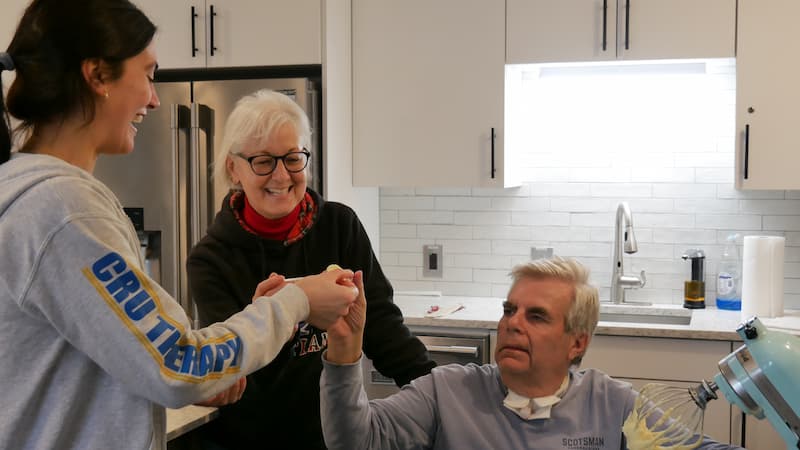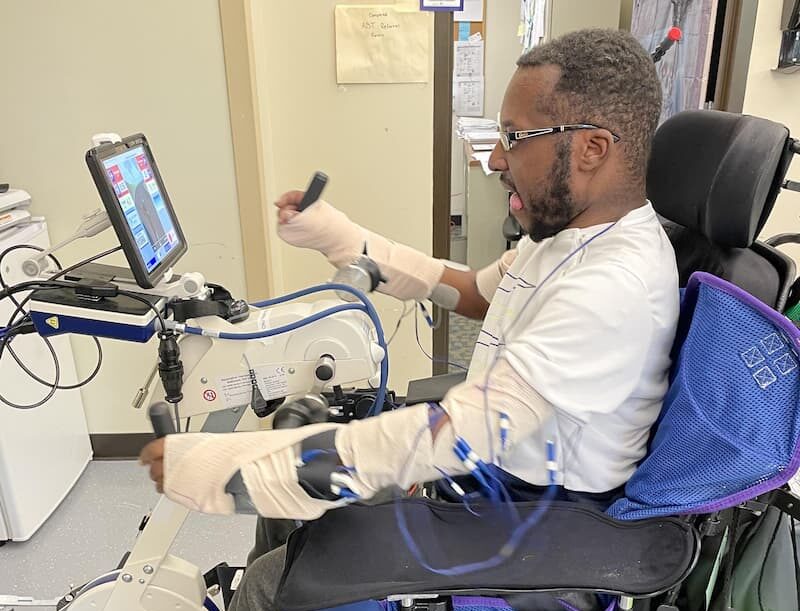GBS rehabilitation and recovery
Inpatient rehabilitation
Our inpatient programs provide intensive therapy to help patients regain strength, mobility, and independence. Unlike other Guillain-Barré rehabilitation settings, Shepherd Center can take patients sooner – even while they are still on a ventilator. The goal is to get Guillain-Barré patients moving toward recovery at the earliest opportunity. Our doctors can also rapidly respond when a patient declines by providing repeat immunomodulatory treatments.
Outpatient rehabilitation and specialty clinics
Our outpatient programs and clinics offer ongoing therapy and support to help patients continue their recovery. This includes pain management, rehabilitation medicine, peer support, and much more.
Our comprehensive services include:
- Medical services: Treatment for relapses and secondary complications to ensure continuity of care.
- Adaptive devices: Training with wheelchairs, braces, or ventilators that integrate seamlessly with mobility aids like electric wheelchairs, as needed.
- Speech therapy: Support for patients experiencing difficulties with swallowing or communication.
- Specialized pain management: Access to a dedicated pain center staffed by clinicians trained in intervention and rehabilitation techniques.
- Psychological counseling: Strategies for coping with stress, depression, or anxiety during recovery.
- Recreational and vocational therapy: Programs to ease the transition back to home, school, or work, promoting confidence and independence.

